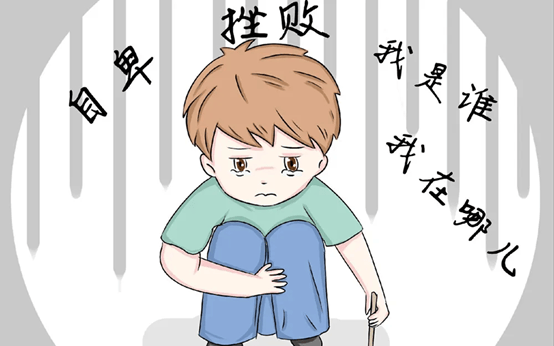Children always break their parents’ hearts in the process of growing up. Some children are timid and shy, not daring to communicate and play with teachers and classmates after entering kindergarten, and some even close themselves off due to excessive inferiority. If these situations are noticed, parents should be vigilant and take measures to eliminate the child’s sense of inferiority, so that the child is willing to accept the surrounding things, play with others, and become lively and cheerful.
I. Five expressions of children’s inferiority
01. Overly nervous and shy
Children with inferiority complex often show excessive shyness and nervousness when interacting with others. They are usually afraid of facing strangers, hesitant to initiate communication, and even appear unsociable in group activities.
02. Lack of concentration in tasks
These children find it difficult to concentrate. Their inferiority emotions make it hard for them to stay focused during studying or playing, resulting in frequent distractions, loss of interest in tasks, and decreased learning efficiency.
03. Always suspicious
Due to inferiority, children care a lot about how others perceive them. When they hear negative comments, these children may dwell on them for a long time.
04. Excessive pursuit of praise
Inferior children, despite feeling inferior to others, eagerly seek praise from parents and teachers. Therefore, they may resort to inappropriate methods to gain recognition, such as cheating or deceiving.
05. Prone to self-abandonment
When children linger in feelings of inferiority for a long time, they may gradually lose confidence, believing they cannot change their circumstances. This mindset can make them become negative, lose passion for learning and life.
II. Why do children develop feelings of inferiority?
01. High parental expectations
Every parent hopes their child will achieve great success and excel academically, leading to high standards and demands for their children. Especially in academic aspects, parents enroll children in various classes, scolding them harshly for slightly inadequate performance, which may make children reluctant to communicate with parents and foster inferiority.
02. Single-parent families
In recent years, the divorce rate has been rising, resulting in an increasing number of children growing up in single-parent households. In such environments, children may feel inadequate compared to others due to not receiving enough love from their parents, causing introversion and self-inferiority when comparing themselves with other children.
03. Influence of parents’ words and actions
Parents are a child’s first teachers, and their words and actions greatly influence children. Many parents tend to compare their own children with others, even openly stating in front of the child that the child is inferior. This can harm a child’s self-esteem, lead to feelings of inferiority, and create a constant sense of inadequacy compared to others.
04. Parents failing to detect children’s emotions in time
Due to busy work schedules, parents may not be around their children often enough to notice when the child has negative emotions or has been hurt, and may thus fail to help promptly. Or parents may refuse to help when the child needs it due to being preoccupied, causing the child to become introverted and inferior.
III. What should parents do about children’s inferiority?
01. Identify the reasons behind the child’s behavior
Parents need to communicate deeply with their children to understand the reasons for their feelings of inferiority. This could be due to difficulties encountered in learning, socializing, or family environments, or negative evaluations from others. Only by understanding the root of the problem can parents help the child effectively.
02. Criticize actions, not the person
For example, if a child makes a mistake during a performance and is teased by classmates, we can tell the child that classmates are laughing at the mistake made, not at the child. We all make mistakes in speaking. Therefore, we should focus on rehearsing properly, being well-prepared, and ensuring a successful performance next time.
When criticism is directed at actions rather than the person, children realize that they made a mistake, but their self-worth remains intact.
03. Provide positive feedback
Parents should pay attention to the child’s progress and strengths. When a child achieves something, offer positive feedback and encouragement. When the child does something right, parents should praise promptly to make the child feel valuable. At the same time, guide children to objectively view their shortcomings and encourage them to bravely face and improve upon them.
04. Look towards the future
Excessive lecture to children feeling defeated and inferior is not beneficial, neither is dwelling on why the mistake happened. Instead, we should tell the child that the event has passed, and focus on how to remedy it, helping the child establish a positive outlook on life and create a healthy relationship with the world.
05. Practice correct self-assessment
Inferior children often struggle with evaluating themselves properly. As parents, it’s essential to help children establish accurate self-assessment, making them understand that everyone has strengths and weaknesses. Parents should teach children to view themselves objectively, neither exaggerating their flaws nor overlooking their strengths.


